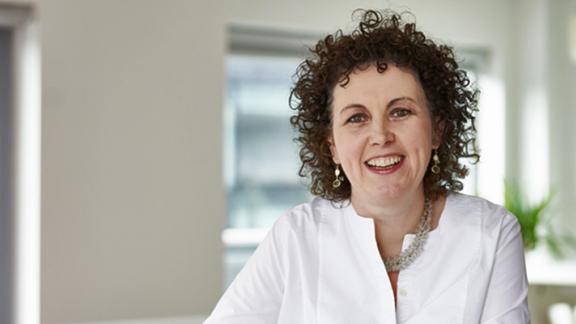Let’s connect and support young people’s mental health

This year's Children's Mental Health Week is on 6 to 12 February. Catherine Roche explains how by sharing resources, we can help create a 'more child-centric and inclusive approach to healthcare'.
A New Year is traditionally a time for a fresh start and new growth. With the cost-of-living crisis, 2023 is more about taking one day at a time.
It’s not only adults affected by these uncertain times - our children and young people are really feeling it too. When combined with the COVID-19 years, pressures around schooling, exams and future jobs, anxiety around war in Ukraine, the UK’s next generation is living through some tough times. NHS Digital data shows that 1 in 6 children in England now has a probable mental health condition, a statistic which has remained steady for the past two years. The pressure on CAMHS continues to grow. With a 39 per cent rise in referrals for mental health treatment, a spike in eating disorders and presentation of increasingly complex cases, NHS staff are pulled in every direction.
Facing up to health inequalities
And it’s not a level playing field. Inequalities in race, gender and household income mean that those from deprived backgrounds or minority ethnic communities are more likely to be disproportionately affected by mental health problems. At Place2Be, we know this first-hand from almost 30 years’ experience of delivering mental health support within schools in some of the most deprived areas of the UK.
The NHS Confederation and its members are at the forefront of tackling these health inequalities, bringing together providers from across the public, private and not-for-profit sectors to grapple with the challenges and create an integrated holistic approach to population health. This spans early intervention through to crisis treatment, with the patient voice front and centre. As CEO of a third-sector mental health organisation focused on improving outcomes for children, and delivering change for the better in our system, I believe passionately in the value, impact and power of collaboration, never more so than in a constrained economic climate.
Children’s Mental Health Week is a chance for us all to look objectively at our own services to assess how we are connecting with young people
Connect to better lives
It is with this in mind that Place2Be has chosen the theme of connection for this year’s Children’s Mental Health Week. The Week, initiated and led by Place2Be, is now in its ninth year.
Meaningful connection is formed through shared understanding, trust and respect. In line with this, Children’s Mental Health Week is a chance for us all to look objectively at our own services to assess how we are connecting with young people. What more can those of us providing frontline mental health services do to be an integral part and fully embedded in the communities we support?
Firstly, we know there is a huge need to train and build the skills, understanding and confidence of the trusted adults around children. By helping teachers, parents, sports coaches and youth workers to develop a deeper understanding of mental health, they are better able to support the wellbeing of the young people in their lives.
Secondly, we know that the mental health workforce is not yet sufficiently representative of the young people we meet and support. Place2Be data from the past academic year shows that 52 per cent of children seeking one-to-one counselling at primary school are boys, and 42 per cent of those we see are from diverse ethnic backgrounds.
There is more we need to do to recruit our workforce from within the communities we support
In contrast, data from The British Association for Counselling and Psychotherapy (BACP) shows that in a sample of 1,000 children’s counsellors, over 80 per cent were female and 87 per cent were white. Within the NHS children and young people’s mental health workforce, 78 per cent are white/white British and 85 per cent female. We currently see similar demographics in Place2Be’s own school-based teams.
When you put the statistics side by side, the gap is stark. There is more we need to do to recruit our workforce from within the communities we support.
Initiatives to grow the workforce
The mental health sector recognises the need to work together to address this gap. The BACP recently launched a new bursary scheme for trainee counsellors, to attract people from under-represented groups, with the aim of creating a more representative, diverse workforce.
Together we can marshal our resources and deliver a more child-centric and inclusive approach to healthcare
Here at Place2Be we are launching our new certification – a qualification which will fast-track recruitment into the children’s mental health space, through a shorter course, which allows greater flexibility, with financial support available for individuals who might otherwise struggle to fund this level of training. The qualification will be specifically marketed to those under-represented in our workforce. We want to open up conversations and attract a bright new set of talented professionals who will be the future of children’s mental health.
All of us – whether in the third-sector, or in the NHS – have a responsibility to promote and nurture mental health, for the benefit of individuals and society. Together we can marshal our resources and deliver a more child-centric and inclusive approach to healthcare. These initiatives are steps in the right direction, but only by working together can we make meaningful change. So, let’s connect!
To find out more about Place2Be’s work visit: www.place2be.org.uk
If you are interested in our qualifications to support your local workforce, please contact: qualify@place2be.org.uk
Catherine Roche is CEO of Place2Be.



